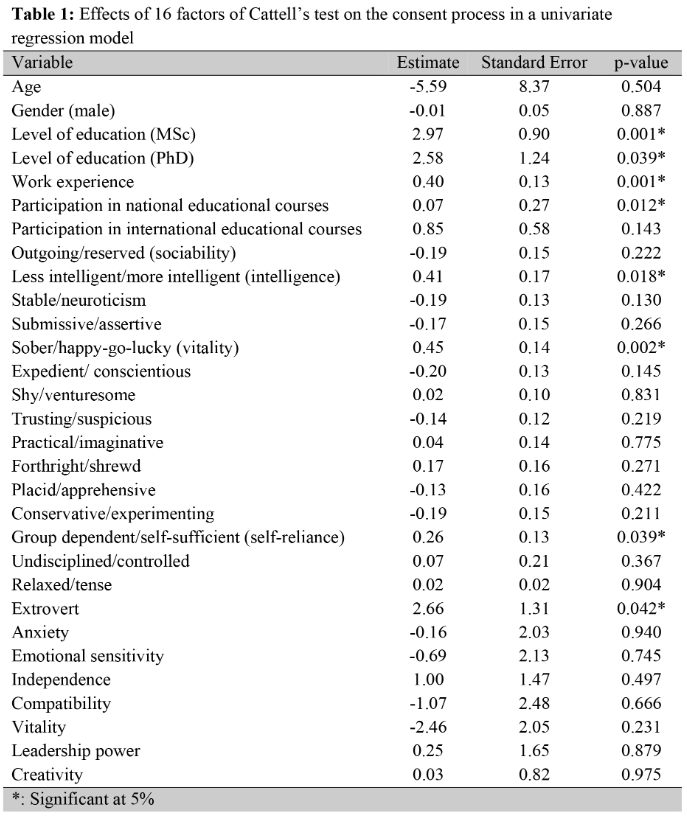Evaluating the effect of psychological characteristics, education, and experiences on the performance of organ procurement coordinators in the family approach
Ehsan Radi1, Katayoun Najafizadeh1, Omid Ghobadi1, Batoul Khoundabi1, Mahnaz Kianinejad1.
1Iranian Research Center of Organ Donation, Tehran, Iran
Background: Following the establishment of the first organ transplant unit in Iran (1991), the first organ donation coordinators were appointed. Obtaining consent from the family of a brain-dead person is one of the most important duties of coordinators. Therefore, many national and international training courses are held to achieve a high family consent rate for these coordinators. This study tries to investigate the influence of coordinators' personality characteristics on their success on obtaining family consent.
Method: This analytical study was conducted on 99 coordinators from 56 transplant organ procurement units in Iran. Basic information including age, education, activity history and attendance of coordinators in national and international training courses, were registered. The family consent rate for each coordinator was determined by defining the ratio of the number of successful consents to the total number of brain death cases that were referred to them. Also, the Cattle test 16-factor psychological was performed on all coordinators to determine characteristics such as extroversion or introversion. Then, the effect of each 16 psychological factors besides basic information were investigated on the success of the coordinators on obtaining family consent. Due to the large number of explanatory variables, linear penalized regression model was applied to effect estimation. Significant level was considered, 0.05 for the model.
Results: 99 coordinators, 44 men and 55 women were studied. 65% of the participants had a bachelor’s degree and the rest had a master’s degree or higher. The results showed higher education degree, training experience, vitality and self-reliance have a significant relationship with family consent rate (p<0.05). Success in family consent for coordinators with master’s degree or higher is 4.2 times that of others. Training experience also leads to higher family consent rate, 1.71 times. Vitality and self-reliance scores increased the family consent rate by 1.16 and 1.22 times.

Conclusion: The findings of the research show that conducting some psychological tests to evaluate personality characteristics and employing coordinators with the mentioned characteristics can increase the coordinators' chances of obtaining consent from the brain-dead family members that will lead to increase the number of transplanted organs, and ultimately, save the lives of more patients.
